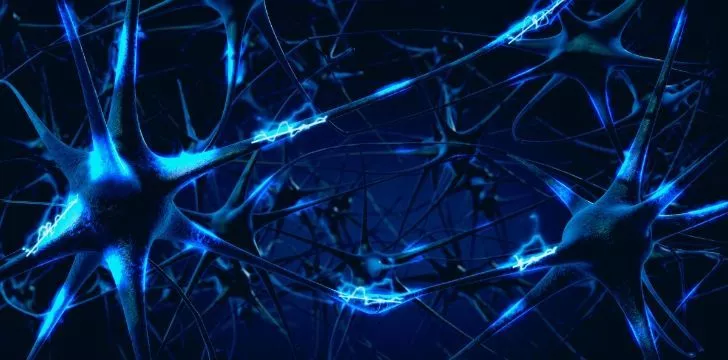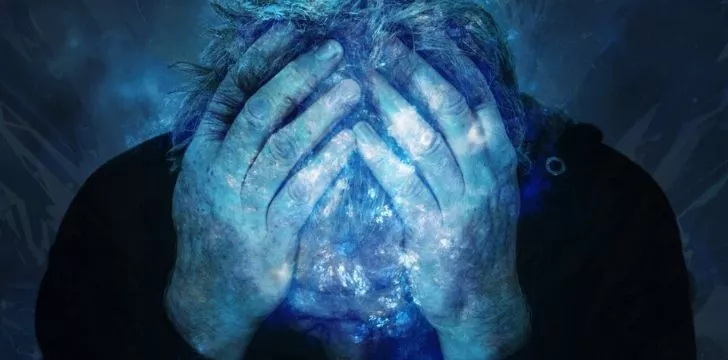Depression has been around for as long as humans have. It has become more recognized over the years as a diagnosable illness that many people suffer from.
Often, we have expectations when we think about depression, we relate it to the result of a traumatic event or a reaction to something sad in our lives, but it is more complex than that.
Here are 8 informative facts to help you understand what depression is.
There are 9 common forms of depression.

You may think that there is one form of depression, but there are many different types that are caused by different elements. There are 9 common forms.
Clinical depression is the most common and this is where a doctor has diagnosed you with depression.
A depressive episode is where a doctor diagnoses you with clinical depression and they decide whether you are going through mild, moderate, or severe episodes.
A recurrent depressive disorder is when you have been diagnosed more than 2 times with depression.
Another type of depression is reactive depression; this is caused by traumatic or stressful life events, such as losing a family member or financial problems.
Dysthymia, also known as chronic depression or persistent depressive order, is when you experience continuous mild depression for over 2 years.
Manic depression which is also known as bipolar disorder is not a form of depression itself, but people who suffer from bipolar disorder will experience severe depressive episodes.
Some people are diagnosed with psychotic depression, this is when someone is experiencing a severe depressive episode and they have hallucinations or are delusional. This is also known as psychosis.
Some women will experience prenatal or postnatal depression when having a child. Prenatal depression is experienced during the pregnancy by the mother and postnatal depression is experienced after the birth and can affect both the mother and father of the newborn.
A more common form of depression is seasonal affective disorder, known as SAD. This is the result of changing weather and climates around you.
1 in 10 people will experience depression.

Depression can be experienced at any age and by anyone. Statistics suggest that 1 in 10 of us will experience it in our lifetime.
In 2016 The National Institute of Mental Health estimated that 16.2 million adults in the US had experienced at least one major depressive episode that year.
The World Health Organization (WHO) estimates that there are more than 300 million people suffering from depression worldwide.
Just over 4% of the world’s populations have been diagnosed with clinical depression.
There isn’t always an obvious reason for being depressed.

Although factors of life, such as trauma, loss of a loved one, or anxiety may be obvious causes of depression, sometimes there is no obvious reason.
Sometimes people can be extremely happy in life, with everything going to plan and suddenly they are faced with depression.
This can be caused by the hormones and chemicals in our brains which can be difficult to accept or explain when we feel like we must have a reason for how we feel.
There are over 15 symptoms of depression.

A lot of people associate feeling depressed with being sad, but they are many symptoms. Most of us will experience sadness at some point in our lives as it is a natural reaction to a negative situation.
However, depression is an illness and has a lot more symptoms than just feeling sad.
Depression can cause any of the following symptoms; feeling anxious, irritable, restless, sad, feeling empty.
Some people will experience low energy or a loss of interest in things they once loved.
Another set of symptoms are related to diet, some people will experience a loss of appetite, or go the other way and comfort eat which could cause weight gain.
As well as changes in appetite it is common to experience problems with sleep.
There can also be physical symptoms as well as emotional, these can include headaches, body aches, and pains, as well as digestive issues.
Not everyone has access to help.

Many people believe that you can just “get over it”, but it is a real illness that needs treatment.
In 2014 the WHO found that almost half of the world’s population didn’t have access to a psychiatrist.
In these countries, on average there were over 100,000 patients to 1 psychiatrist.
The US and Canada had around 13 psychiatrists per 100,000 people.
In Europe, the average was between 20-40 psychiatrists per 100,000 people.
Neurotransmitters can cause depression.

Neurotransmitters are important in regulating mood within the brain.
Serotonin and dopamine are the two main neurotransmitters that can cause depression if imbalanced.
Serotonin is the “feel-good” chemical in our brain and plays a role in our wellbeing and dopamine helps regulate emotion, memory, thinking, and motivation.
Scientists are still trying to find out what causes these neurotransmitters to become imbalanced.
Depression can be developed from as young as 3 years old!

The Brain and Behavior Foundation has found that children as young as 3 years old have been diagnosed with early-onset depression.
A study by Dr. Luby at the Department of Psychiatry, Washington University School of Medicine, found that once a child reaches 3 years old, they have developed an adequate level of communication skills, social and emotional behavior, so it is easier to identify symptoms and diagnose depression.
Before the age of 3, it is difficult to define actions, which could be related to symptoms of depression, so no one has been diagnosed with depression under 3 years old.
Therefore, it is unknown if you can develop depression at a younger age.
The USA is the third most depressed country in the world.

Across the globe, there are millions of cases of depression and you might think that it would be the developing countries that may be suffering from the most depression as they have more to worry about.
But that isn’t always the case. A study from the WHO shows that the US is third on the list of the top 10 most depressed countries.
China is first on the list and India second.
A suggested reason for this may be the lack of access to mental health services across these top three countries.
Although systems might be in place, they are often unaffordable or inaccessible for everyone, so people go undiagnosed or untreated.
Now you know more about depression, its causes and effects why not reach out to a friend to check they are okay?
Some of your closest friends or relatives could be suffering and not know that they are experiencing depression.
It can be a difficult topic to talk about, but the more we support and educate each other, the more people we can help.


















